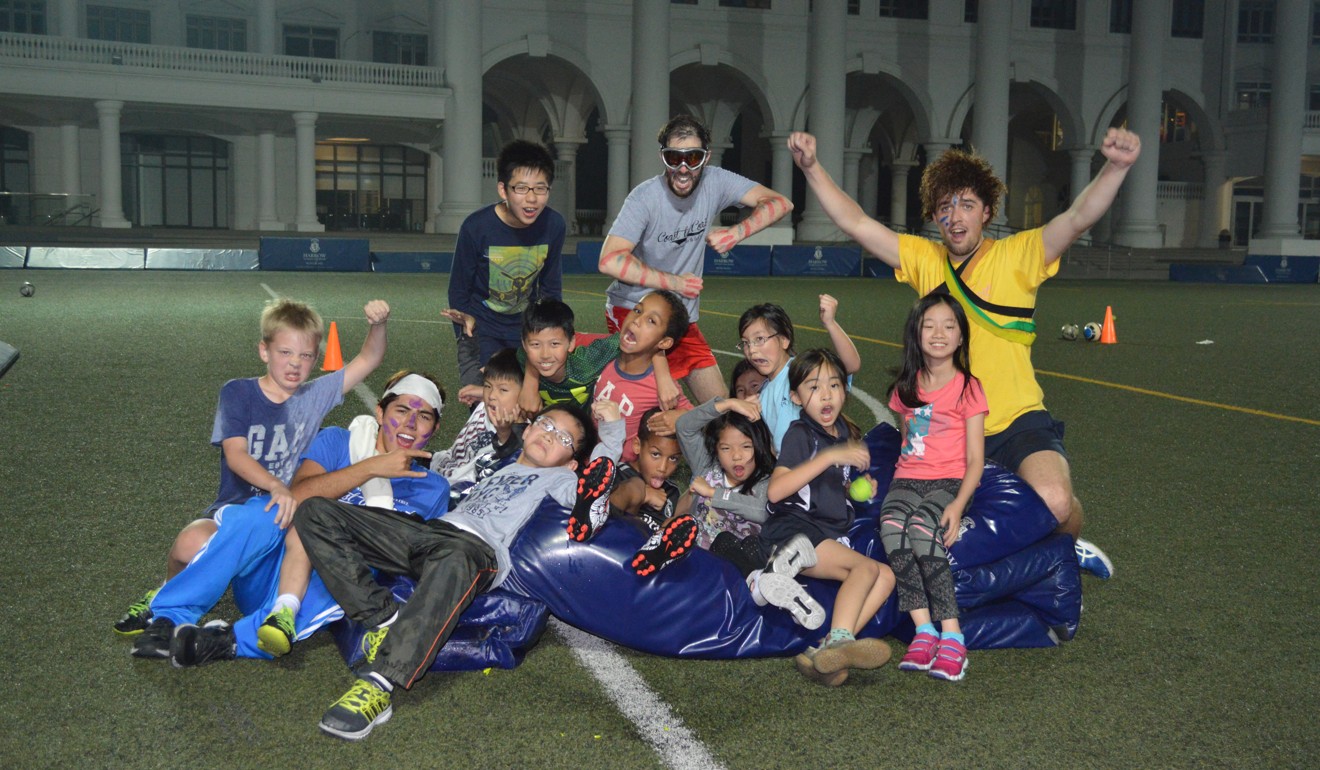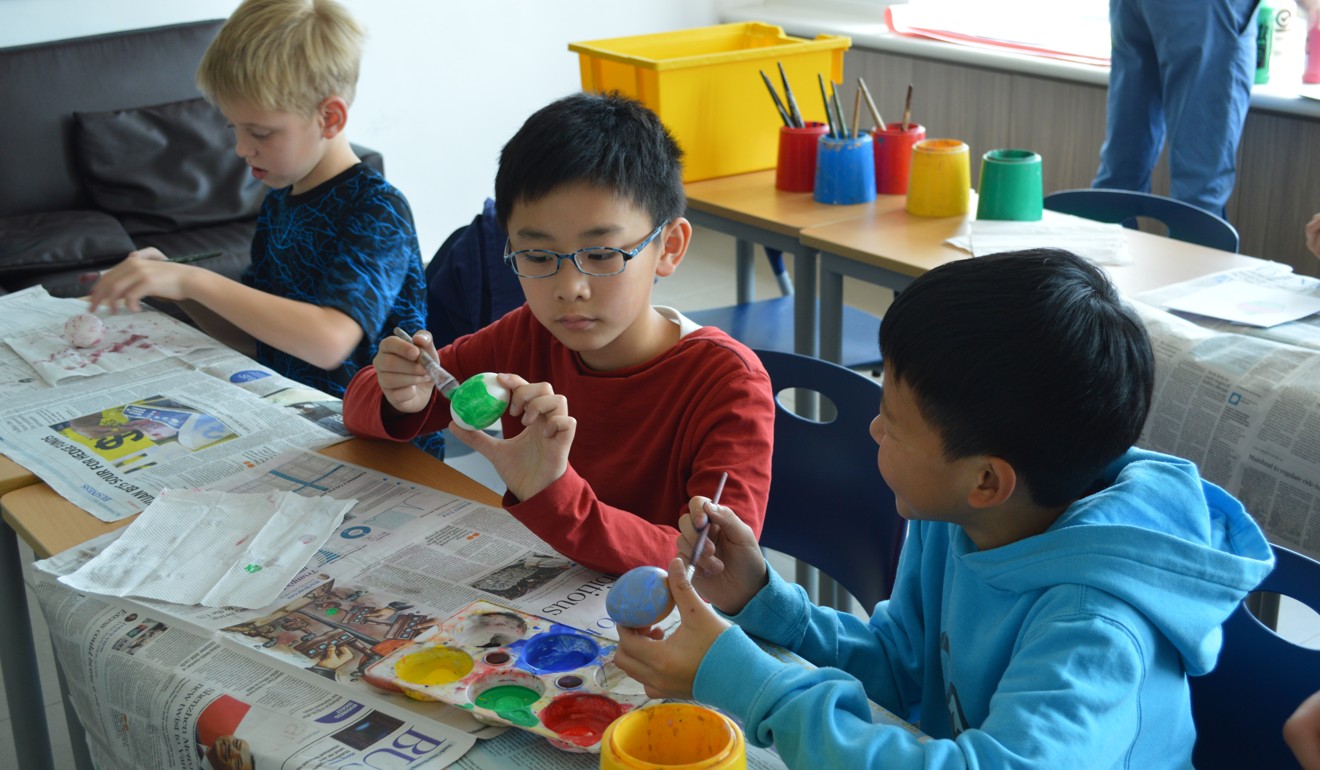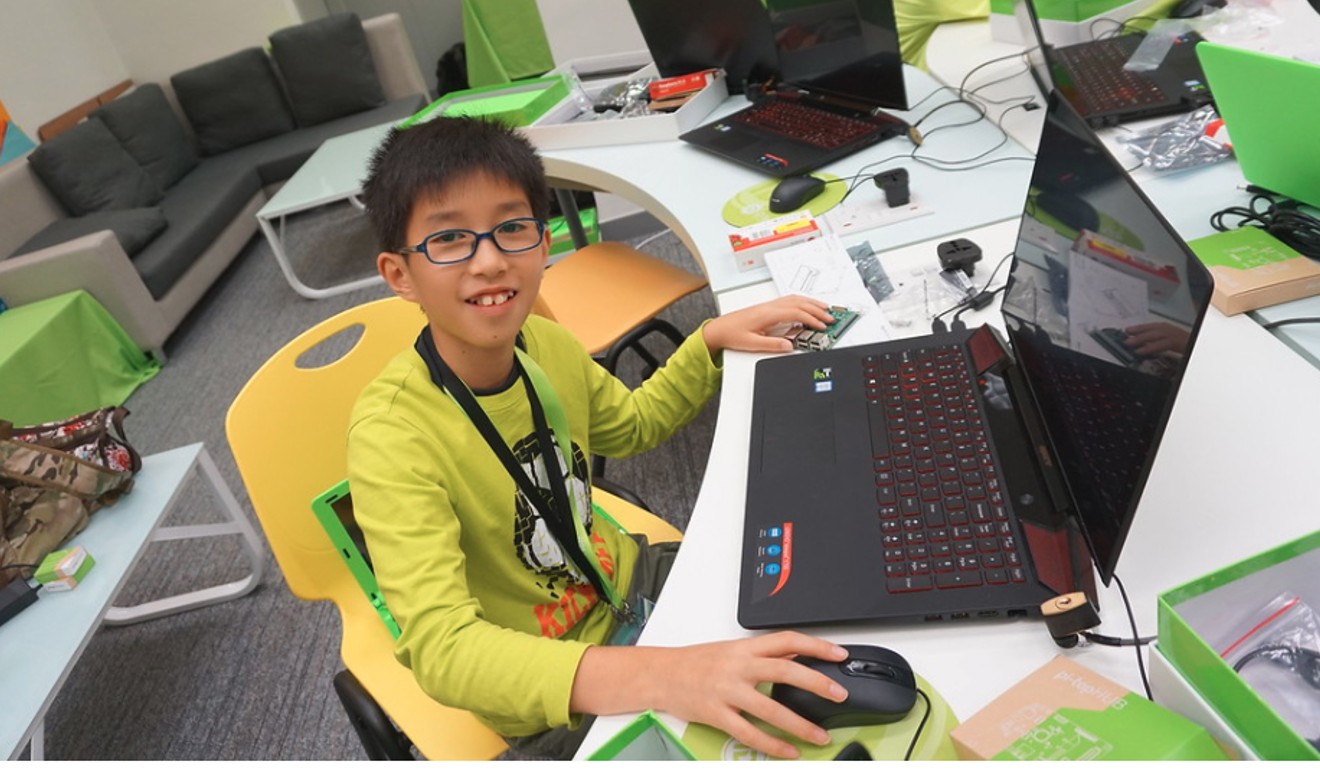
Summer camps can be enriching and fun at same time for children
We take a look at Anglo Academy and Koding Kingdom’s two programmes that help children develop abilities and learn new skills away from the classroom
It’s never too early to start plans for the summer holidays. And, for many parents in Hong Kong, that doesn’t just mean booking trips and tickets for the family getaway.
The long school break is also a time for children to get involved in all kinds of camps, programmes, sports and other organised activities.
These give them the chance to make friends, explore interests, develop abilities, and learn useful new skills in a fun-filled environment.
And, with an ever increasing range to choose from, it clearly pays to weigh up the options carefully.
Children will be divided by age once they arrive to ensure they can make friends easily from the very first moment with us
For example, some courses are residential and deliberately more academic in terms of content and approach.
For others, the focus is more on getting kids out and about, spending nights under canvas on Lantau Island or in the New Territories, having a go at rock climbing, or perhaps mastering the basics of sailing and sea kayaking.
In some cases, as for courses on coding or computing, things are mainly designed for groups of like-minded enthusiasts. In others, it’s all about introducing the kids to new possibilities, perhaps letting them try their hand at tennis, rugby or golf for the very first time and, hopefully, igniting passions that may last a lifetime.

“Our attendees are from six to 15 years old,” says Caroline Drewett, founder and director of Anglo Academy, which is running two summer programmes in July at Harrow International School Hong Kong.
“They will be divided by age once they arrive to ensure they can make friends easily from the very first moment with us.”
Both camps are fully residential, lasting five days and four nights. The aim is to cover all the key aspects of what students could expect to find in a British boarding school.
This includes debating, presentations, projects, arts, music and sports.
Taking part in such a range of activities and subjects helps children gain in confidence. It also gives them a greater sense of self-reliance and independence through being away from home for the week.
“We find that students who feel confident both inside and outside the classroom enjoy school and their education,” Drewett says.
“The often go on to study in Britain or the USA at a leading boarding school. With specialists on site, mainly from the UK we can ensure that each child has the highest quality experience with us.”
Morning classes are structured as practical workshops, and participants can all choose a subject or area to focus on.
Afternoons are then set aside for sports lessons and the chance to burn of any excess energy. So, for example, if children want to improve their tennis skills, a coach is on hand, and other such interests are also catered for.
“We are in constant contact with parents, so we can be sure every child makes the most of their time with us and has new experiences,” Drewett says.
She believes one of the great strengths of the programme is the “house” system, something no doubt familiar to fans of the Harry Potter books and films.
Everyone is assigned to a house on their first day and then represents it during games, competitions
and evening activities held during the rest of the week. It is a good way to make friends and quickly create a sense of belonging, while also letting children of all ages contribute and allowing individual strengths to shine through.
Each course costs HK$11,050 (US$ 1,410 ) per student, which includes accommodation, meals, snacks, lessons, sports and even a camp T-shirt. There are no hidden extras.
The facilities are first-rate, with an on-site swimming pool, artificial turf pitches, boarding houses and well-equipped classrooms.
Every effort is made to ensure a more or less equal ratio of boys to girls and a spread of ages so that no one feels left out.
Past precedent shows the courses are usually fully booked about six weeks before the start date, but not surprisingly parents are encouraged to sign up as early as possible to be sure of a spot.
“We offer a truly British experience, which mirrors that of a UK public school education,” Drewett says.
Our philosophy is that every child is unique, and that being away from home can bring out a confidence and independence many children didn’t know they had
“Our philosophy is that every child is unique, and that being away from home can bring out a confidence and independence that many children didn’t know they had.
“There is no TV and no gaming. Instead, we provide an engaging and stimulating programme that fosters social interaction. And we guarantee that every child will end the week having tried something new for the first time.”
For parents and kids who prefer to zero in on something specifically IT-related, the number of options keeps growing. In part, that’s down to youngsters’ obvious fascination with the world of tech, but there’s also an element of thinking ahead to foreseeable changes in the workplace and getting a possible head start in tomorrow’s job market.

“Our camps are suitable for students aged five to 17,” says Wendy Wong, operations manager of Koding Kingdom (Hong Kong), which this summer is offering five-day courses from Mondays to Fridays with two-hour sessions each day.
“With one instructor for every five children, the courses are intensive, so students spend nearly all of the lesson time actively learning.”
There are three main age groups (five to seven, eight to 11, and 12 to 17), and in terms of content the various courses focus on STEM, game design, programming, robotics, and digital media.
Basic fees are around HK$3,500 for a week-long camp, and with registration set to open in May, demand for this summer is expected to be strong.

“Computer coding is becoming much more popular because technology is now an integral part of our everyday lives,” Wong says.
“Learning how to program enables kids to better understand and control the technology we all use. Parents and students are seeing the importance of these skills and the benefits they provide.”
While the emphasis is firmly on acquiring skills and knowledge, the instructors aim to do this in a classroom environment which is interactive and fun.
Computer coding is becoming much more popular because technology is now an integral part of our everyday lives
They use up-to-date tools, tailor-made to teach the fundamentals to different age groups and ensure they progress rapidly.
“Our goal is to help all students, regardless of their initial level of proficiency, to understand programing, how to communicate with computers, and how to express themselves through coding in a creative way,” Wong says.
“In doing this, we aim to offer an experience that prepares students for a future in which computer technology is ubiquitous and digital literacy is vitally important for success in many domains.”
The company is also behind a series of iD Tech summer camps, for seven- to 17-year-olds, to be held at the University of Hong Kong. Most last five full days, from 9am to 5pm, though advanced two-week courses are also available.
The 24 different choices, split by age group, range from basic programming to far more complex skills. For example, kids can learn to design video games using industry-standard tools such as Unreal Engine, or about robotics and artificial intelligence by programming a Cozmo robot.
The full camp experience emboldens children to shape their future, but also includes plenty of games and socialising
A teacher-pupil ratio of 1 to 8 makes it possible to customise course content and cover key concepts, while also allowing time to develop and work on individual projects.
Fees start from US$1,200 per week, and there is an option for overnight accommodation in university dorms, with some early-bird discounts.
“Participants gain in terms of computer literacy, programing, communication and teamwork skills,” Wong says.
“The full camp experience emboldens children to shape their future, but also includes plenty of games and socialising.”
